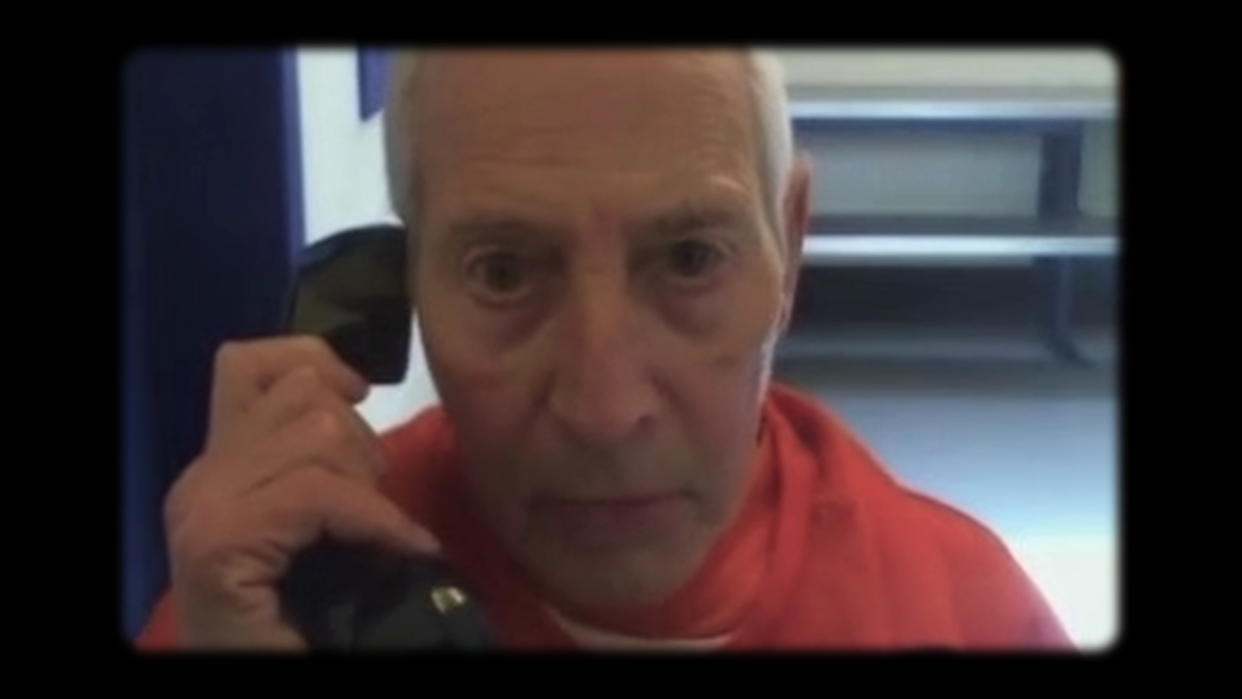‘The Jinx’ Director Says Robert Durst’s Lawyer Called Their Interview ‘Worst Idea I’ve Heard in My Entire Life’

- Oops!Something went wrong.Please try again later.
After his first breakfast with Robert Durst, ahead of their original interviews for “The Jinx,” Andrew Jarecki was asked to meet with Durst’s lawyer.
“And the lawyer says, ‘Well, Bob, you’ve asked me to meet with Andrew and find out what he wants to do about this interview,'” Jarecki recalled at the New York premiere of “The Jinx – Part Two” in New York April 18. “I just want you to know I think this is possibly the worst idea I’ve ever heard in my entire life.'”
More from IndieWire
Durst, a multimillionaire suspected of three murders but convicted of zero at the time, went ahead with the interview, generally ignoring legal advice and claiming, “I don’t care if he puts it in a billboard in Times Square, let him do what he wants.” (This did happen during Season 1, just in time for Durst to be indicted). The rest is television history; the jaw-dropping first six episodes of “The Jinx” which ended with Durst effectively confessing into a hot mic after he was faced with damning evidence.
“He enjoyed the oddity of it,” Jarecki mused during a Q&A after Episode 1, when asked why Durst didn’t evade justice in between the interview and the “Jinx” finale in 2015. “He enjoyed the feeling of danger. It’s one of the reasons why I think he called me to begin with. What do you do when you’ve grown up your entire life and people are giving you a million dollars a year in trust distributions, and your father is more talented and successful and everybody else is getting accolades — and you’re not doing anything? You sort of need the stimulation.”
“I think he wasn’t sure if he was in trouble or not. And he was like, sitting there with the popcorn saying, ‘This is incredible. I wonder how this is going to end.'”
Jarecki played strategist with Durst at the time, opting to stay “friends” with him, to let him think the interview went well when it had betrayed Durst’s guilt. Soon after, he got in touch with prosecutor John Lewin, a key figure in “The Jinx – Part Two” who specializes in cold cases — especially those without a body, like the initially unexplained disappearance of Durst’s ex-wife Kathleen McCormack. Lewin was present at the premiere and described a similar dance with Jarecki that Jarecki employed with Durst; both parties needed something from each other (cooperation, advice, evidence) and needed to keep things casual and copacetic. In Lewin and Jarecki’s case, there was at least a mutual goal: justice.
“The Jinx” Season 1 did not premiere with intent for a second installment, but as Durst’s trial began, Jarecki and Zac-Stuart Pointier were transfixed by the parade of individuals orbiting Durst who now entered as witnesses — many of them brought in early on due to a legal loophole for elderly witnesses (who could pass away before trial) or those believed to be in danger.
“As much as Bob is a unicorn and is this very unique, inscrutable guy who’s sort of endlessly interesting… how do you kill three people over 30 years and get away with it? It takes a village,” Jarecki said. “Let’s start recognizing that there was this kind of constellation of people around Bob, people who saw themselves as perfectly decent, good people who got involved in some incredibly bad acts.”
Like Durst himself, none of the figures emerging in the wider story are cartoon villains, but often compelled by circumstance and vulnerability. “It’s easy to say, ‘Oh, well, I would never have done something as amoral as helping this murderer, but then you’ve got to say, ‘Well, what if I had a sick child?'” Jarecki explained.
And from implicated accomplices to long-lost victims (Pointier noted that Durst’s close friend Susan Berman was both), Jarecki tried to stay focused on the humanity of everyone involved, “real people who sadly walked into this buzzsaw that was Bob Durst.” In brief opening remarks before a screening of Episode 1, he said that all of this goes back to McCormack.
“The story that’s at the center of this tale is really for us the story of one very unique girl, Kathleen McCormack, who disappeared in 1982,” he said. “That was the story. That story was never true…sometimes we lose sight of that because Bob is so entertaining in his dark and strange way.”
In “The Jinx – Part One,” McCormack’s late mother mused in her interview that something useful might come out of the show, whether that was new evidence or a reopening, or even closure for a family “keeping the porch light on” for over 40 years.
“I always try to keep that in mind,” Jarecki said, after pointing out McCormack’s brother in the audience. “That we try to tell the story in a way that appreciates Bob’s quirkiness without losing sight of the the victims.”
“The Jinx – Part Two” premieres April 21 on HBO.
Best of IndieWire
The Best LGBTQ Movies and TV Shows Streaming on Netflix Right Now
Guillermo del Toro's Favorite Movies: 54 Films the Director Wants You to See
Nicolas Winding Refn's Favorite Films: 37 Movies the Director Wants You to See
Sign up for Indiewire's Newsletter. For the latest news, follow us on Facebook, Twitter, and Instagram.

